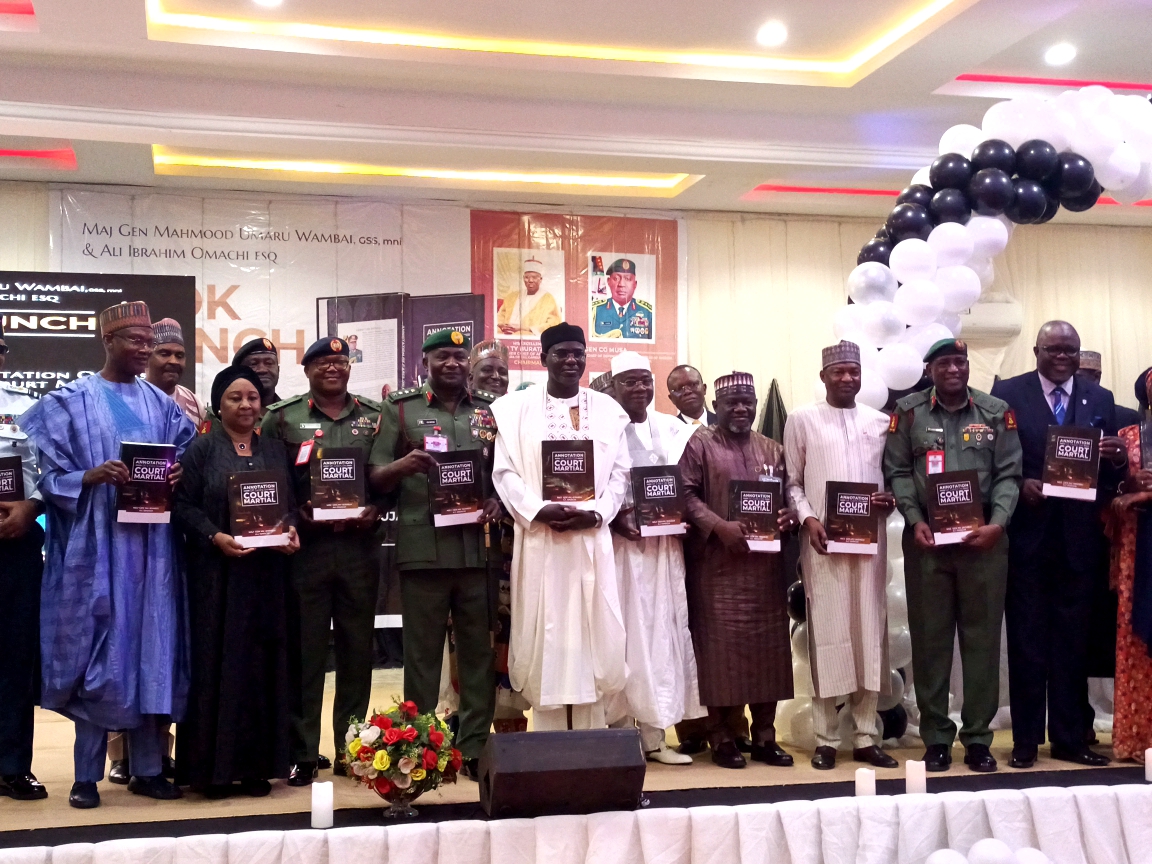By Sumaila Ogbaje
Former Chief of Army Staff (COAS), retired Lt.-Gen. Tukur Buratai, has called for a careful balance between the demands of military discipline and the constitutional rights of personnel under Nigeria’s evolving democratic system.
Buratai made the call in Abuja at the public presentation of the book “Annotation of Cases on Court Martial,” co-authored by Maj.-Gen. Mahmoo Wambai and Mr Ali Omachi (Esq) on Thursday.
He said Nigeria’s court-martial system, rooted in British military tradition, had undergone a profound transformation over the decades, mirroring the nation’s political and legal evolution.
“The imperative for military discipline must now be balanced with the constitutional rights of personnel and the scrutiny of civilian appellate courts,” he said.
Buratai highlighted landmark judgments such as Eweka v. Nigerian Army and Gideon Uweri v. Nigerian Army as milestones that reinforced fair hearing and delineated court-martial jurisdiction within democratic norms.
According to him, these rulings reflect the growing tension and harmony between the rule of law and the demands of command and control in a professional force.
“A fair and just military justice system is the bedrock of disciplined armed forces and a stable democracy.
“For the military, court martials remain indispensable for enforcing conduct and professionalism; for democracy, they demonstrate that the Armed Forces are firmly under the rule of law,” he said.
The former COAS said transparency in the military justice process not only strengthens civilian oversight but also deepens public trust in the institution of the Armed Forces.
He commended the Nigerian Body of Benchers, the Nigerian Bar Association (NBA), and the Council of Legal Education for their enduring partnership with the Armed Forces in refining military law and training military legal officers.
Buratai described the book as a significant milestone that offers incisive commentary and practical insights into military jurisprudence.
“This is a vital guide for practitioners, commanders and judges.
“It highlights avenues for reform and enriches understanding of military justice within a democratic framework,” he added.
Speaking on the book, the author, Maj.-Gen. Wambai, said the book was motivated by the need to correct misconceptions that often lead to appellate courts overturning decisions of courts martial.
Wambai stressed that discipline is the foundation of the Armed Forces and that weakening it could jeopardize national security.
“We observed that some judgments are overturned due to technicalities or lack of understanding of military law.
“Our aim is to guide both military lawyers and appellate judges on the peculiarities of military justice.
“Without discipline, there can be no military. If we fail to enforce the law within, trained personnel with weapons may lose their sense of responsibility, and that’s dangerous for any country,” he warned.
The Co-author Ali Omachi, said the book was the first comprehensive compendium of appellate cases on court martial in Nigeria, providing insights into why some tribunal decisions fail on appeal.
Omachi added that the initiative represents a modest but crucial step toward strengthening the integrity of the military justice system, ensuring that discipline and due process coexist in harmony.
“We sought to bridge the gap between legal theory and the practice of court martial. Many verdicts are set aside because of procedural lapses or non-adherence to constitutional provisions.
“Our book highlights these pitfalls and offers practical recommendations to make military trials more effective and credible,” he added. (NAN)

